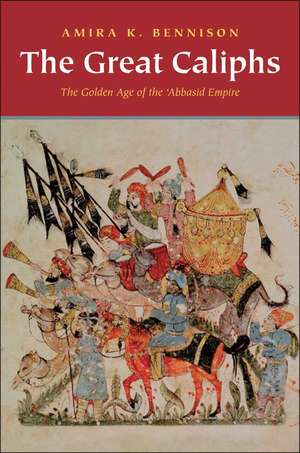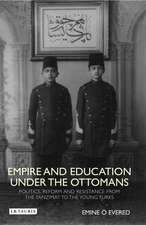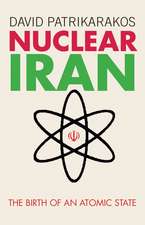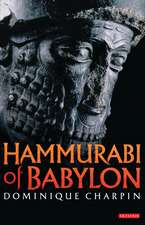The Great Caliphs: The Golden Age of the 'Abbasid Empire
Autor Amira K. Bennisonen Limba Engleză Paperback – 31 aug 2010
This endlessly informative history brings the classical Islamic world to life
In this accessibly written history, Amira K. Bennison contradicts the common assumption that Islam somehow interrupted the smooth flow of Western civilization from its Graeco-Roman origins to its more recent European and American manifestations. Instead, she places Islamic civilization in the longer trajectory of Mediterranean civilizations and sees the ‘Abbasid Empire (750–1258 CE) as the inheritor and interpreter of Graeco-Roman traditions.
At its zenith the ‘Abbasid caliphate stretched over the entire Middle East and part of North Africa, and influenced Islamic regimes as far west as Spain. Bennison’s examination of the politics, society, and culture of the ‘Abbasid period presents a picture of a society that nurtured many of the “civilized” values that Western civilization claims to represent, albeit in different premodern forms: from urban planning and international trade networks to religious pluralism and academic research. Bennison’s argument counters the common Western view of Muslim culture as alien and offers a new perspective on the relationship between Western and Islamic cultures.
In this accessibly written history, Amira K. Bennison contradicts the common assumption that Islam somehow interrupted the smooth flow of Western civilization from its Graeco-Roman origins to its more recent European and American manifestations. Instead, she places Islamic civilization in the longer trajectory of Mediterranean civilizations and sees the ‘Abbasid Empire (750–1258 CE) as the inheritor and interpreter of Graeco-Roman traditions.
At its zenith the ‘Abbasid caliphate stretched over the entire Middle East and part of North Africa, and influenced Islamic regimes as far west as Spain. Bennison’s examination of the politics, society, and culture of the ‘Abbasid period presents a picture of a society that nurtured many of the “civilized” values that Western civilization claims to represent, albeit in different premodern forms: from urban planning and international trade networks to religious pluralism and academic research. Bennison’s argument counters the common Western view of Muslim culture as alien and offers a new perspective on the relationship between Western and Islamic cultures.
Preț: 207.04 lei
Nou
Puncte Express: 311
Preț estimativ în valută:
39.62€ • 41.26$ • 33.49£
39.62€ • 41.26$ • 33.49£
Carte indisponibilă temporar
Doresc să fiu notificat când acest titlu va fi disponibil:
Se trimite...
Preluare comenzi: 021 569.72.76
Specificații
ISBN-13: 9780300167986
ISBN-10: 0300167989
Pagini: 256
Ilustrații: 24 b-w illus.
Dimensiuni: 149 x 229 x 17 mm
Greutate: 0.36 kg
Editura: Yale University Press
Colecția Yale University Press
ISBN-10: 0300167989
Pagini: 256
Ilustrații: 24 b-w illus.
Dimensiuni: 149 x 229 x 17 mm
Greutate: 0.36 kg
Editura: Yale University Press
Colecția Yale University Press
Recenzii
". . . concise and comprehensive."—Choice
"Amira Bennison's engaging history of the 'Abbasid caliphate moves beyond more conventional or drier accounts of political intrigue among ruling elites and sectarian squabbles. The author adopts a broader and deeper approach, focusing above all on ‘the people:’ that mosaic of urban and rural folk who individually and collectively make up a civilization. Women, children, beggars, tricksters, merchants and pilgrims—as well as the great cities that brought them all together—are given fascinating coverage. Nor does the author neglect the community of scholars cultivated by the 'Abbasids who - in the fields of literature, philosophy, theology, mathematics and astronomy—left their indelible mark upon Islamic civilization. The Great Caliphs is an important work which offers a new and stimulating perspective on an exciting era."—David Waines, Lancaster University
"Aimed at the educated general reader, this volume offers a sweeping portrayal of major Islamic cultures and societies down to the 13th century AD and occasionally beyond. Drawing on both primary sources and secondary studies, the author provides a lively survey of politics, urban and rural life, societal and religious realities, trade and commerce, and elite culture and learning, with attention to issues of race/ethnicity, gender, and class. Her book is a thoughtful introduction to society, culture, and characteristic institutions as these took shape in the central and western reaches of the Islamic world, from Iran to Spain and Morocco, in the ‘Abbasid era."—William A. Graham, Harvard University
"Amira Bennison's engaging history of the 'Abbasid caliphate moves beyond more conventional or drier accounts of political intrigue among ruling elites and sectarian squabbles. The author adopts a broader and deeper approach, focusing above all on ‘the people:’ that mosaic of urban and rural folk who individually and collectively make up a civilization. Women, children, beggars, tricksters, merchants and pilgrims—as well as the great cities that brought them all together—are given fascinating coverage. Nor does the author neglect the community of scholars cultivated by the 'Abbasids who - in the fields of literature, philosophy, theology, mathematics and astronomy—left their indelible mark upon Islamic civilization. The Great Caliphs is an important work which offers a new and stimulating perspective on an exciting era."—David Waines, Lancaster University
"Aimed at the educated general reader, this volume offers a sweeping portrayal of major Islamic cultures and societies down to the 13th century AD and occasionally beyond. Drawing on both primary sources and secondary studies, the author provides a lively survey of politics, urban and rural life, societal and religious realities, trade and commerce, and elite culture and learning, with attention to issues of race/ethnicity, gender, and class. Her book is a thoughtful introduction to society, culture, and characteristic institutions as these took shape in the central and western reaches of the Islamic world, from Iran to Spain and Morocco, in the ‘Abbasid era."—William A. Graham, Harvard University
Notă biografică
Amira K. Bennison is senior lecturer in Middle Eastern and Islamic Studies at the University of Cambridge.
Cuprins
AcknowledgementsNote on transliterationList of MapsList of FiguresChapter 1 IntroductionChapter 2 A Stormy Sea: the politics of the 'Abbasid caliphateThe making of an empireThe Umayyads: Islam's first caliphal dynastyThe rise of the 'AbbasidsThe early 'Abbasid caliphateThe Samarran interludeThe Shi'i centuryThe Saljuq sultanate and the 'Sunni revival'The Crusades and the twilight of the caliphateChapter 3 From Baghdad to Cordoba: the cities of classical IslamArab urbanism at the dawn of IslamThe first Muslim townsUmayyad urbanism'Abbasid imperial cities and their imitatorsProvincial cities in the 'Abbasid ageChapter 4 Princes and Beggars: life and society in the 'Abbasid AgePeasants and countryfolkThe people of the cityWomen and childrenThe religious minoritiesBeggars and trickstersChapter 5 The Life Blood of Empire: trade and traders in 'Abbasid timesRoutes and commoditiesMerchants and pilgrimsTrade facilitiesChapter 6 Baghdad's 'Golden Age': Islam's scientific renaissanceThe foundations of Islamic learningThe flowering of knowledge under the 'AbbasidsThe 'Abbasid translation movementTranslations, translators and scientistsKnowledge and science after the translation movementChapter 7 The 'Abbasid LegacyBibliography Index













